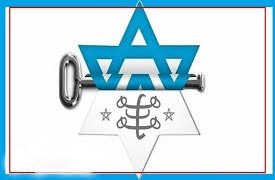Written by: Mahmoud Ghouchani
The Baha’i groups opposing Abbas Effendi were present in Palestine. They didn’t consider. Abbas and Shoqi merited to be the leaders of the Baha’i cult after Hussein Ali Nouri (Bahaullah). They (the covenant breakers) were dominated on the Baha’i places in Palestine and agonize Shoqi very much, but the Israel government supported Shoqi wing.
In his letter dated June, 11, 1952 A.D., Shoqi gave good news to the Baha’is such as “The continual falling of the rest of Covenant breakers who are opposing the powers of the Baha’i community in the world is definite.” Then, he points out that the Baha’is have destroyed “the ruined houses belonged to the opponents nearby the Baha’i places and they have complained about this measure to the Israeli courts. However, the Israel government rejected the competence of the country to investigate the case.
At that time, Shoqi seized the time and acted directly. Consequently, the mentioned agents issued the permit to destroy those ruined place when Shoqi referred to the prime minister and the minister of foreign affairs of Israel government. According to Shoqi Effendi, this measure of his opponents which caused the Israeli officials to be angry led them to be totally deprived of the benefits used by them during 60 years in the holy days of Baha’ism.[1]”
He continues: “Next to the Blessed Garden; in the eastern part, there was a shop for blacksmith’s trade belonged to one of the covenant breakers advocating Muhammad Ali, Abbas Effendi’s brother and the claimant of his succession. He was working there. According to Shoqi’s order, the mentioned shop was destroyed and its old stable was too.[2]”
In a telegraph dated September, 15, 1951 A.D., Shoqi declares Israel’s support in the conflict between the opponents and him. “Give good news to the disciples that the keys of field palace were delivered by the Israel government officials after more than 50 years.[3]”
By the total support of the Israeli government, Shoqi received various privileges and won against his opponents: “He grasped the blessed palace of Bahaullah out of the dominance of the covenant breakers… Mirza Muhammad Ali and changed it to a holy place and museum. He exempted the Baha’i properties and lands to pay tax. He made the Baha’i marriage known as a legal one and caused the rightfulness and legitimacy of Baha’i faith to be approved first by the British government and then by the Israeli one…[۴]”
In this way, the Israel government recognized Shoqi’s wing officially[5] and issued explicit order concerning the legitimacy of the Baha’is and denounced the hostile opponents.[6]” from that time on, all places dominated by Abbas Effendi’s opponents –or by covenant breakers according to the Baha’is- even their residential houses were captured and delivered to Shoqi’s wing organization.[7]
Concerning the Baha’is importance for the Zionistic regime, a person afflicted with the embassy of that occupying government in Uruguay says: “There is a small group of Baha’is in Israel who are mostly Iranians. Although they do not exceed 250 people, but they are really important in Israel.[8]
[۱] The faith news, Khordad-Tir 1331, for explaining the adventure refer to the detailed letter of the Baha’i international panel dated January 1, 1952 A.D. (Tir 10, 1331 S.H.) to the national spiritual assembly of the Iranian Baha’is. (The faith news, 1331 S.H., No. 5, Shahrivar.
[۲] Ibid, year 1331 S.H., No. 5, (Shahrivar)
[۳] Ibid, 1329 S.H., No. 8-9, (Azar-Day)
[۴] Ahang-e-Badia, 1339 S.H., No. 8-10 (Shoqi’s periodical), p. 219.
[۵] The faith news, Azar 1338 S.H., No. 9, p. 259.
[۶] Ibid, Mordad 1331 S.H, No. 4, p. 4.
[۷] Ahang-e-Badi’a, 1339 S.H., No. 4, p. 96.
[۸] The faith news, Mordad-Shahrivar ۱۳۴۰ S.H., No. 5-6, p. 303.






